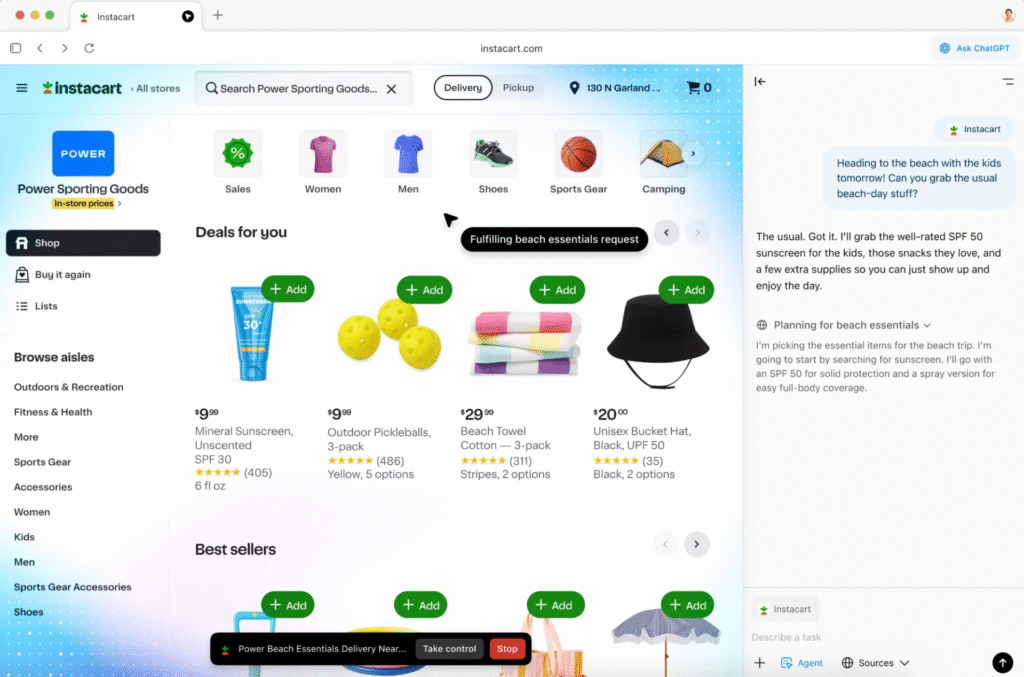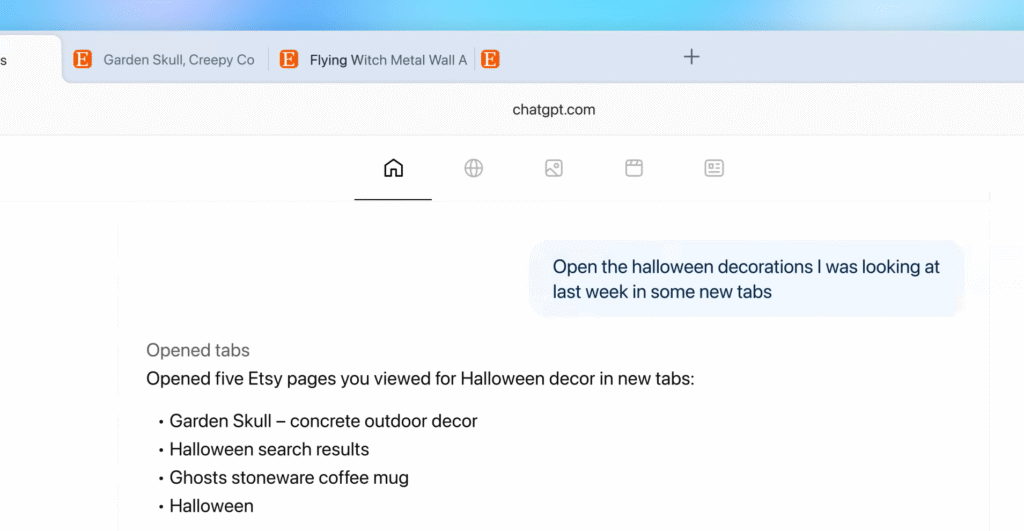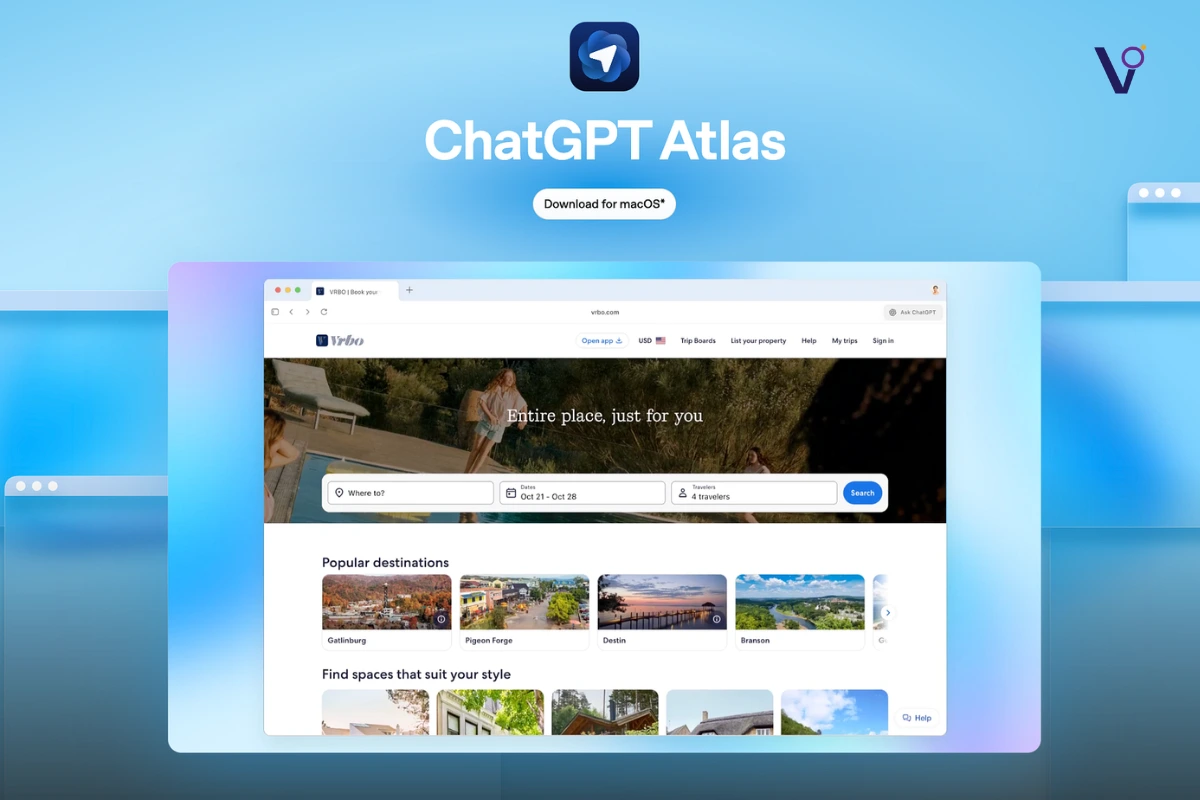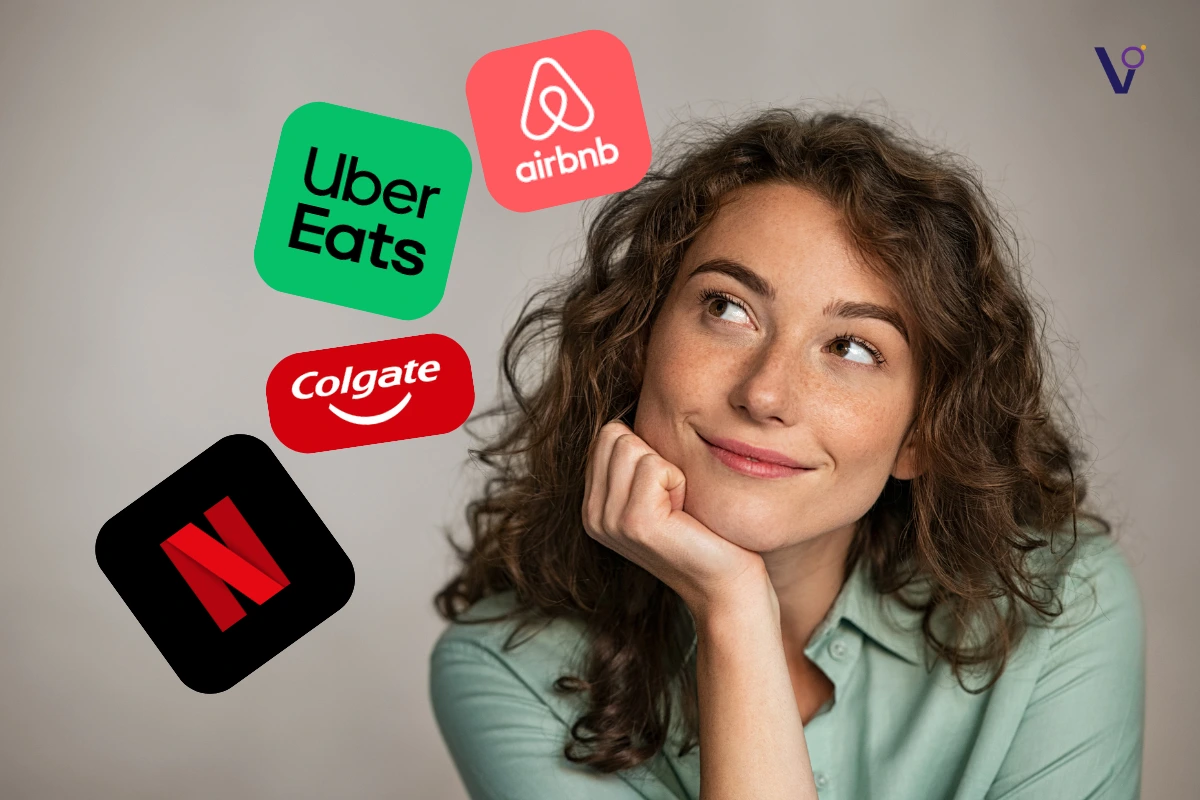OpenAI has just introduced its boldest move yet in web browsing: the ChatGPT Atlas browser. At its core, this isn’t just a browser with an AI tool added. It’s built around AI itself, putting conversational, task-doing capability front and center.
At Viral Omega, we believe this could mark a major shift in how people experience the internet.
Key Takeaways
- ChatGPT Atlas deeply integrates AI through features like a sidebar, browsing memory, and agent mode that acts on your behalf.
- It’s launching first on macOS, with Windows and mobile versions coming soon.
- The browser raises big questions around privacy, workflow, and the future of online advertising.
What is the ChatGPT Atlas Browser?
A browser built around ChatGPT
OpenAI calls ChatGPT Atlas “the browser with ChatGPT built in.” Instead of a chat window beside your browser, this one understands your context, your tabs, and your goals, allowing you to search, read, summarise, and act, all in one place.

Key features at a glance
- Sidebar “Ask ChatGPT”: Summarise an article, compare products, or analyze data directly on any webpage.
- Browser memory: It remembers your previous chats and browsing sessions, helping it recall context when you revisit topics.
- Agent mode: For Plus and Pro users, the AI can perform actions from shopping and booking to filling forms autonomously.
- Classic tools remain: Tabs, bookmarks, and history import keep the interface familiar.

Launch and availability
ChatGPT Atlas is available globally on macOS, with Windows, iOS, and Android versions coming soon. The full “Agent Mode” is exclusive to paying users for now.
Why This Matters: The Potential Impact
Changing how we browse
Traditional browsers haven’t evolved much: you type, click, and tab-hop. Atlas changes that by making browsing conversational. During OpenAI’s launch event, one line stood out: “Tabs were great, but it’s time for what’s next.”
With Atlas, you can tell your browser what you want to do instead of figuring out how to do it yourself. That shift could save hours for professionals who multitask across multiple tools daily.
Rethinking search and discovery
Atlas doesn’t depend heavily on traditional search engines. Instead, it combines chat, context, and browsing. You might ask it for “the best laptops under ₹80,000,” and instead of links, you’ll get personalised answers complete with direct purchase options.
This could reduce how often users visit websites directly, meaning marketers and publishers may see traffic changes.
Balancing privacy and performance
The biggest power of Atlas is its ability to “remember” you. But that also raises privacy concerns. According to OpenAI, memory features can be turned off, and data is stored securely. But users will still need to stay aware of what the browser tracks.

How Well Does It Work?
The positives
Early users report that Atlas offers:
- A clean, clutter-free interface
- Easy migration from Chrome or Safari
- Accurate summaries and fast responses within the browser
It’s also intuitive, where typing feels more like chatting than searching.
The limitations
Atlas isn’t perfect yet. The agent mode is still limited to paid users, and some actions can be slower than manual browsing. Since it’s new, extension support is minimal. Privacy also depends on how users manage permissions.
Implications for Marketers & Creators
SEO and content strategy
With browsing now intertwined with AI conversations, SEO isn’t just about keywords anymore. It’s about clarity and intent. Content should answer direct questions naturally because Atlas might pull short, clear snippets to respond to users’ prompts.
At Viral Omega, we recommend businesses to:
- Focus on user intent and conversational phrasing
- Include structured data and context-rich sections
- Ensure authenticity to align with AI summarisation
Advertising and monetisation
If users stop clicking through search results and instead get answers directly in their browser, ad impressions could fall. Brands may need to reimagine campaigns that work within AI ecosystems through partnerships, verified sources, and conversational branding.
Building trust in the AI era
For marketers, one priority remains: trust. When AI becomes the middle layer between brand and user, your credibility must stand out. Businesses should focus on genuine storytelling, transparent data policies, and AI-friendly branding experiences. For instance, Tidio integrated a chatbot that can engage with customers looking for help.

Summary
The ChatGPT Atlas browser could redefine how people experience the internet from reading and shopping to researching and working. By integrating memory, action, and AI-driven understanding, it pushes web browsing beyond static pages toward intelligent interaction.
For creators and marketers, this isn’t a threat but an opportunity to adapt early. The future of digital experiences will belong to brands that make their content accessible not just to humans, but to the intelligent systems humans now use.
At Viral Omega, we’ll continue to explore how tools like ChatGPT Atlas transform the online landscape helping businesses stay visible, trusted, and ready for what’s next.
Atlas ChatGPT is highly efficient for businesses aiming to streamline content creation, automate conversations, and maintain authentic brand communication without losing human touch.
ChatGPT Atlas stands out for creating natural, engaging, and tailored marketing content that builds stronger audience relationships and supports brand growth.
Yes. Atlas accesses real-time information from the web, allowing businesses to stay updated with current trends, competitor data, and industry insights that support timely marketing decisions.
ChatGPT Atlas is part of OpenAI’s advanced offering, typically within paid plans. The pricing reflects its extended capabilities like browsing, data visualization, and higher creative output.
Unlike Chrome, which focuses on browsing and search, ChatGPT Atlas prioritizes interaction and intelligent content creation. Compared to Comet, Atlas offers deeper creative reasoning, brand-tailored insights, and real-time collaboration for marketers.



